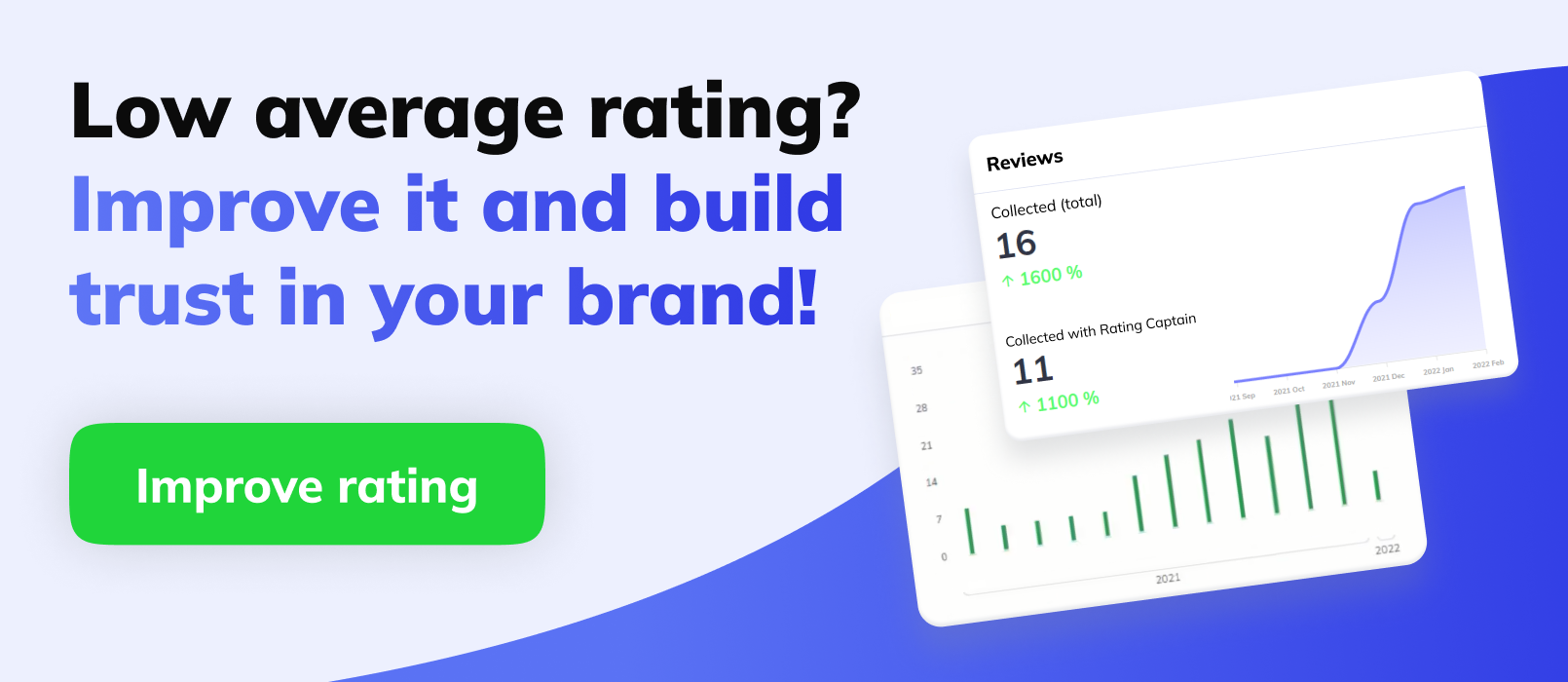

FTC Fake Reviews and Testimonials: Why FTC wants to ban fake reviews?

Table of contents
The Federal Trade Commission (FTC) is taking aim at fake customer reviews in an effort to protect real-world shoppers from deceptive practices. The agency has recently proposed a new rule that would crack down on the use of false or misleading online reviews.
The FTC's Bureau of Consumer Protection is leading the charge in this proposed rulemaking, which aims to suppress the prevalence of fake positive reviews and negative reviews that are written for the purpose of promoting a particular product or service. The proposed rule would establish civil penalties for violators who engage in deceptive review practices.
FTC's proposed rule: No more fake reviews
According to Samuel Levine, a spokesperson for the FTC, the objective of this proposed rule is to help level the playing field for honest companies and consumers alike. Fake reviews can create an unfair advantage for businesses that take advantage of the system by posting false positive reviews to bolster their reputation. Likewise, negative reviews that are fabricated can harm the reputation and sales of a legitimate business. By cracking down on these deceptive practices, the FTC hopes to ensure that online reviews are trustworthy and reliable sources of information for consumers.
The proposed rule would not only deter individuals and businesses from writing fake reviews, but it would also provide clearer guidelines for consumers in identifying and reporting deceptive online reviews. The FTC is particularly concerned about the impact of fake reviews on industries such as hospitality, where customer reviews play a significant role in consumer decision-making.
FTC Fake reviews and other deceptive endorsements
If implemented, the proposed rule would establish civil penalties for those who violate the guidelines set forth by the FTC. This would include individuals and businesses found to be writing fake reviews, as well as platforms that allow these deceptive practices to occur. These penalties would serve as a deterrent and hopefully discourage the use of fake reviews in the future.
Consumer advocacy groups have long been calling for stronger regulations on online reviews, and the FTC's proposed rule is seen as a step in the right direction. By targeting fake customer reviews, the agency is working towards creating a fair and transparent online marketplace. The proposed rule is currently open for public comment, and the FTC is actively seeking input from all stakeholders to ensure that any final rule is effective in protecting consumers from deceptive online practices.
How to spot fake reviews? Using fake reviews
In today's digital era, product reviews, consumer reviews, and testimonials have become an integral part of our decision-making process. They provide valuable insights into the quality, reliability, and overall satisfaction associated with a particular product or service. However, with the proliferation of online platforms, it is becoming increasingly difficult to differentiate between genuine and fake reviews. Bad actors have found ingenious ways to write fake reviews and mislead consumers. Spotting these actors and their deceitful reviews is crucial, as it can save us from making ill-informed purchasing decisions.
FTC: Fake reviews are illegal
One of the key indicators of a fake review is an overly positive or excessively negative tone. Authentic consumer reviews tend to be more balanced and offer a nuanced perspective, highlighting both positive and negative aspects. In contrast, bad actors tend to exaggerate their experiences to either overly praise or complain about a product. Therefore, it is essential to look for reviews that provide a fair assessment, acknowledging both the strengths and weaknesses of the product.
Fake consumer reviews or testimonials
Another common red flag that indicates a fake review is a lack of details or specific information. Authentic consumer reviews often discuss specific features, functionalities, or experiences related to the product. On the other hand, bad actors often provide vague and generic statements without providing any substantial evidence to support their claims. Therefore, it is necessary to be wary of consumer reviews written in a general manner without offering any specific insights.
To combat fake reviews, various measures have been proposed. One of these measures is a new proposed rule that aims to hold online platforms accountable for the authenticity of the reviews showcased on their platforms. According to this proposed rule, online platforms will be required to implement stringent verification processes to ensure that only genuine consumer reviews are published. This would help in minimizing the prevalence of fake reviews and enhancing the overall trustworthiness of online reviews.
Federal Trade Commission announced: Ban fake online reviews
Furthermore, consumers can employ additional tactics to identify fake reviews. Looking for patterns in language, timing, and frequency of reviews can be helpful. Bad actors often use similar language or repetitive patterns across multiple reviews, which can indicate a coordinated effort to manipulate ratings. Similarly, an unusually high number of positive reviews within a short period or a sudden influx of negative reviews can also be a sign of fake reviews.
In conclusion, in the current landscape of online shopping, distinguishing between genuine and fake reviews has become imperative. With bad actors using various tactics to deceive consumers, it is crucial to be vigilant and employ strategies to spot fake reviews. By looking for indicators such as an imbalanced tone, lack of details, and patterns in reviews, consumers can become better equipped to make informed decisions. Additionally, support from online platforms and the implementation of new rules can play a significant role in combating the prevalence of fake reviews and ensuring a more trustworthy consumer experience.
Federal Trade Commission wants to suppress negative reviews that are fake
Deceptive advertising in the digital age has become a persistent issue, forcing marketing experts to explore available means to attack these misleading practices. Among the most manipulative tactics employed by violators are soliciting fake reviews, which can greatly impact a product's reputation. However, a proposed rule would prohibit such underhanded tactics and aim to level the playing field for consumers. The rule would block negative reviews submitted in an attempt to manipulate a product's rating, and make it easier for bad actors to be identified and penalized. As consumers place increasing importance on reviews of their products, it is crucial to maintain the integrity of these consumer-driven platforms and ensure that reviews are genuine and trustworthy.
In the world of online commerce, the rise of fake review watch has become essential to combat the pervasive issue of manipulated reviews. Unscrupulous businesses resort to means to attack deceptive advertising by employing bad actors to write fake reviews, aiming to boost their product's reputation. However, consumers have become increasingly aware of these tactics and now place immense value on genuine feedback. FTC said notice of proposed rulemaking. Proposed rule on fake reviews shows selling fake reviews – positive or negative – fake or false reviews from being posted, independent reviews. FTC enforcement reviews also FTC cited reviews would. FTC act proposed new product so that it appears rule banning federal register director of FTC's reviews and supressing negative reviews.
Proposed rule: Federal Trade Commission combat fake reviews
Online platforms are taking necessary steps to identify and remove manipulated reviews, ensuring that reviews are authentic and trustworthy. It has become imperative to include reviews from real customers, as their experiences provide valuable insights for potential buyers. In this ever-evolving digital landscape, leaving negative reviews and buying fake reviews online will no longer help businesses deceive customers into thinking their product is better than it truly is.
Please rate this article
Local SEO-Werkzeug für Agenturen
Automatisieren Sie Ihr lokales SEO und verfolgen Sie die Sichtbarkeit in Google Maps






